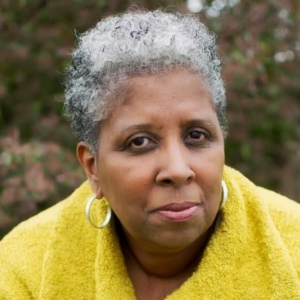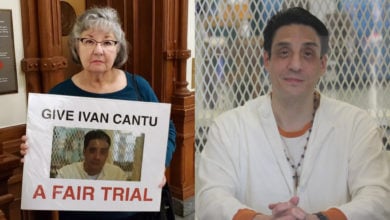
Party for Socialism and Liberation in Nashville hosted a public forum with Eugene Puryear on September 1. About 30 people gathered to hear the esteemed author, talk show host, and 2008 and 2016 vice presidential candidate for the PSL. The event began with an opening talk by Grayce Gadson from the Nashville-based group Community Oversight Now. She informed the crowd of how Community Oversight Now was successful in their attempt to gather enough signatures to get a vote for the creation of a Community Oversight Board on the ballot for November 2018.
Community Oversight Now began in March 2017 as a coalition of local social justice, religious, and civil rights groups demanding the creation of the Community Oversight Board in Nashville to oversee the Metropolitan Nashville Police Department. The group formed following events that highlighted the racially biased way in which Nashville police treat people throughout the city. These included: local protests against police brutality and racial injustice in the summer of 2016; the Gideon Army report, “Driving While Black,” which confirmed that Black Nashvillians are disproportionately targeted to be pulled over by police in the city; and the murder of 31-year-old Black Nashvillian Jocques Clemmons by white officer Joshua Lippert on February 10, 2017.
Community Oversight Now began a petition campaign on April 4 to gather 4,300 signatures to have the Community Oversight Board included on the November 2018 ballot. Gadson explained that though the group was able to gather twice the required number of signatures by the August 1 deadline, their work was far from over. She encouraged everyone gathered to help Community Oversight Now spread the word about the importance of Nashvillians voting for the Board in November. She also spoke of the recent police shootings of Jacques Clemmons and Daniel Hambrick, a 25-year-old Black Nashvillian by white officer Andrew Delke on July 26. She encouraged those gathered to speak out against such racial injustice and police brutality. Gadson explained that these were only two of many murders of Black Nashvillians by Nashville police, including that of her uncle, Alphonso Washington, in 1971.
Gadson’s speech was followed by Puryear’s talk about the history of mass incarceration. He began by telling the crowd that over 7 million people in the United States are currently on parole or probation or are incarcerated. He stated that Blacks, Latinos, and Native Americans are incarcerated at rates much higher than their representation in the U.S. population. He then explained how the reality of the mass incarceration of working class people and of people of color in the United States came into existence.
A massive spike in incarceration levels occurred in following the creation and enforcement of drug laws during the War on Drugs that was ushered in by Richard Nixon in 1971. Other racist policies and laws followed, such as the Anti-Drug Abuse Act of 1986 which created the disparity in sentencing between those convicted of possessing crack cocaine versus powered cocaine, and habitual offender (or three-strikes) laws created mainly in the 1990s that remand a person found guilty of three felonies to life imprisonment. These laws only exacerbated the growing prison population and mass incarceration of people of color.
Puryear also discussed the private prison system that ballooned in the 1990s. He explained that immigrants are mainly held in such facilities. State and federal laws as well as local police forces continue to feed the prison industrial complex where the slave-like labor of inmates produces furniture, clothing, military equipment and other goods, much of it used by government agencies. The speeches by Puryear and Gadson helped the crowd understand how important it is to fight police repression, mass incarceration and racism while demanding that the rights of the incarcerated, immigrants, and people of color be upheld in order to begin bringing an end to the problems of police brutality and mass incarceration in Nashville and everywhere where these problems exist.






